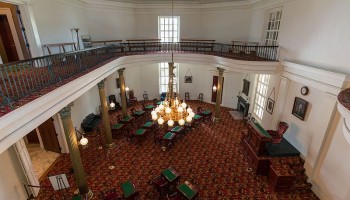Although police officers refused to provide official statistics on the number of protesters, this “march of shame” clearly marked the largest in a series of anti-corruption protests that have been occurring weekly in the Israeli metropolis.
The allegations of bribery, fraud and misuse of trust driving these demonstrations against Israeli Prime Minister Benjamin Netanyahu and his administration have been accumulating over months, but have come to a head because of the so-called “recommendations bill”.
According to Deutsche Welle, this piece of impending legislation, supported by Netanyahu’s party, Likud, creates measures to prevent Israel’s police from “publishing findings and issuing recommendations to the prosecutor's office on indictments related to public officials.”
Prime Minister Netanyahu is currently facing two separate investigations involving conflict of interest and bribery. The “recommendations bill”, if passed, would directly benefit Netanyahu, alleviating political pressure for him to step down in the case of an indictment.
So-called "Case 1000" involves allegations that Netanyahu accepted gifts such as cigars, champagne and bags of cash from Arnon Milchan, a billionaire Hollywood producer, and James Packer, an Australian investor, in exchange for political favors. Israeli law prohibits public representatives from receiving any gift that isn’t “of small value and reasonable in context,” reports the The New Yorker.
"Case 2000" involves allegations that Netanyahu met with the owner of Yedioth Ahronoth newspaper, asking for positive coverage, in exchange for taking measures to reduce the circulation of one of the newspaper’s rivals.
In another case that also implicates Netanyahu’s wife, Sara Netanyahu, the family was alleged to have racked-up more than US$ 100,000 in restaurant, grocery and take-out bills to their private residence using the public pocketbook.
Deutshe Welle reports that the Prime Minister and his wife both deny the alleged corruption, and blame their former housekeeper, who now helps organize anti-corruption protests, for the charges.
Netanyahu also faces scrutiny in the media for a possible third incident, related to the $2 billion purchase of submarines from the German company, ThyssenKrupp. The attorney who represented ThyssenKrupp in the acquisition is also Netanyahu’s personal attorney and cousin. The Associated Press and Deutsche Welle have both reported this affair.
Perhaps in response to pressure from Saturday’s protests, on Sunday, Netanyahu requested that a lawmaker behind the “recommendations bill” ensure that it "be worded in a way that it won't apply to the investigation taking place into my affairs," the AP reported.
Although the “recommendations bill” was originally scheduled for a parliamentary vote on Monday, the bill was taken off of the committee agenda Sunday evening.
Netanyahu has dismissed the corruption allegations against him, at different points calling them “fake news” and “witch hunts”, Vox reported in August.
Corruption is not unknown within the Israeli executive. Former Israeli Prime Minister Ehud Olmert was sentenced to 18-months in prison in 2016 after receiving envelopes of cash from an American businessman, as reported by The New Yorker.
However, if officially indicted on corruption charges, Netanyahu would not be legally required to abandon the prime ministry, although he might face pressure to resign or call new elections in order to restore his mandate.
According to the Associated Press, Barak Medina, a law professor at Jerusalem's Hebrew University, said in August that formally Netanyahu won't have to resign, but if police recommend he be charged with a serious crime, “it is unlikely he will be able to carry on in his job."
This could change if the “recommendation bill” passes because police involved in the investigations against Netanyahu would not be allowed to recommend an indictment or make their findings public.






